Explanation of my 10 Ballon d'Or 1978
This is my ranking, my opinion on the Ballon d'Or of the year 1978. This ranking is based on the calendar year, not the season. What counts for this ranking is the player's regularity over the calendar year, the number of matches played, the ability to raise his level in big games, statistics (goals, assists, clean sheets, goals conceded, etc.) and trophies won (collective and individual).
#10 Diego Armando Maradona
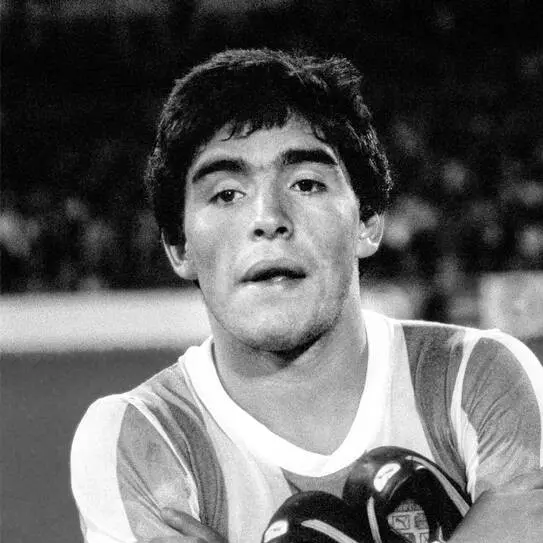
- Age : 17/18 years old
- Club : Argentinos Juniors
- Statistics : 36 games, 26 goals, 9 assists
- Trophies : /
- Individual Awards : Metropolitano POTY, Metropolitano TOTY, Metropolitano Golden Shoe (22 goals)
In 1978, Diego Maradona was the most dazzling talent not at the World Cup, a teenage prodigy already lighting up Argentina’s domestic league but left watching from the sidelines as his country lifted the trophy without him. At just 17, Maradona was already a phenomenon at Argentinos Juniors. That year, he scored 26 goals in 36 matches, often carrying a modest team with moments of sheer brilliance—slaloming runs, impossible passes, and a swagger that belied his age. Crowds came just to see him. He wasn’t just a player; he was a spectacle. Yet, despite his form, César Luis Menotti made the controversial decision to leave him out of Argentina’s 1978 World Cup squad. The reasoning? He was “too young.” But the omission only added to the myth. Maradona didn’t sulk—he exploded. Every match he played that year felt like a rebuttal, a reminder that greatness doesn’t wait for permission.
#9 Daniel Passarella
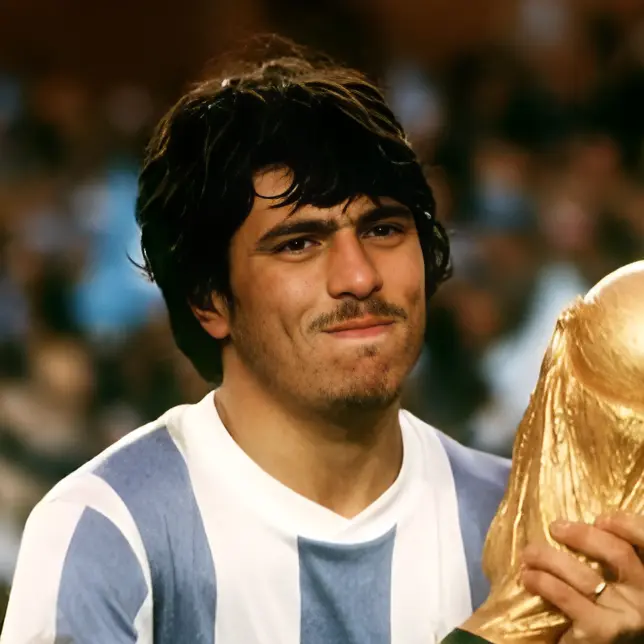
- Age : 24/25 years old
- Club : River Plate
- Statistics : 29 games, 3 goals, 2 assists
- Trophies : World Cup
- Individual Awards : World Cup TOTT
In 1978, Daniel Passarella was the iron-willed captain of a nation on the brink of destiny, leading Argentina to its first-ever World Cup title on home soil. At 25, he wasn’t just a defender—he was a symbol of authority, composure, and quiet fire. That year, Passarella played every minute of Argentina’s seven World Cup matches, anchoring the backline with a blend of aggression and elegance. He scored a crucial penalty against France in the group stage and wore the armband with a maturity that belied his age. His leadership was unshakable, even as the pressure of a home tournament mounted with each match. At club level, he continued to shine for River Plate, contributing both defensively and offensively—his knack for scoring from set pieces and penalties made him one of the most prolific defenders in the world. He also featured in the 1978 Copa Libertadores, playing key matches against Independiente, Atlético Mineiro, and Boca Juniors.
#8 Zico
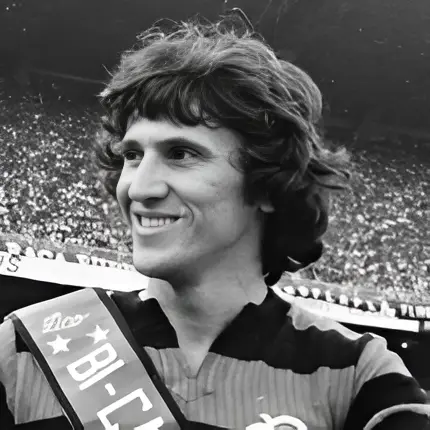
- Age : 24/25 years old
- Club : Flamengo
- Statistics : 38 games, 23 goals, 13 assists
- Trophies : Rio Championship, Guanabara Cup
- Individual Awards : Rio Championship POTY, Rio Championship TOTY, Rio Championship Golden Shoe (19 goals)
That year wasn’t the peak—it was the ascent. Zico was sharpening the tools that would soon make him a legend. He had already won the Bola de Ouro in 1977, and in 1978 he continued his rise, but with slightly more inconsistency than what we’d later see during his dominant run from 1979 to 1982. He was still brilliant—scoring over 40 goals for Flamengo, dazzling with free kicks and through balls—but there was a sense that he was still perfecting the tempo of his game. In the 1978 World Cup, he showed flashes, especially in that notorious moment against Sweden where his last-second header was ruled out by the referee despite appearing to cross the line.
#7 Fernando Morena
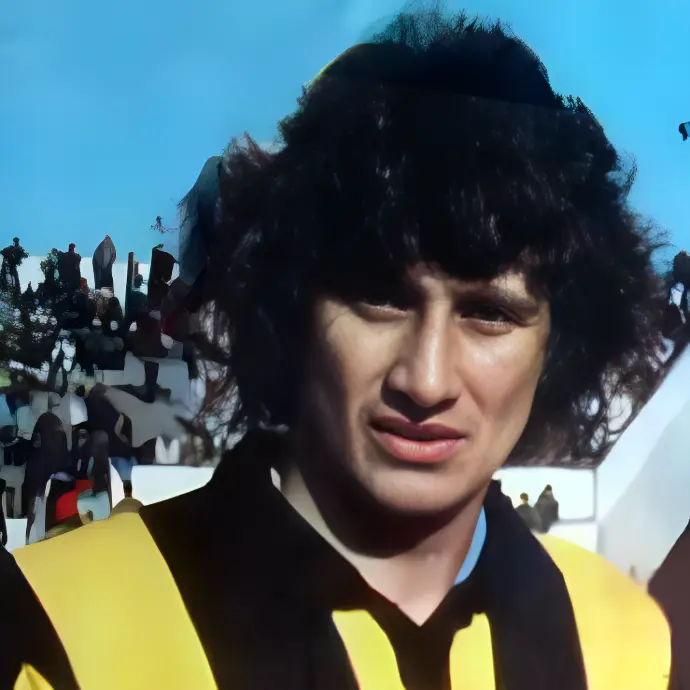
- Age : 25/26 years old
- Club : CA Peñarol
- Statistics : 41 games, 67 goals, / assists
- Trophies : Uruguyan League
- Individual Awards : Uruguayan League Golden Shoe (36 goals)
In 1978, Fernando Morena wasn’t just scoring goals—he was bending reality. At 26, the Peñarol legend delivered a season that remains etched in South American football history. That year alone, he scored 36 goals in the Uruguayan Championship, securing the golden boot for the sixth consecutive season and setting an all-time record for most goals in a single campaign. But here’s the jaw-dropper: he recorded 9 hat-tricks across league and cup competitions. Nine. That’s not a purple patch—it’s a symphony of destruction. Defenders didn’t just fear him—they were hoping to survive him. In one iconic match, Morena scored seven goals against Huracán Buceo—yes, seven in a single 90 minutes. And he didn’t stop there. Whether it was Bella Vista, Fénix, or Danubio, no one was safe. His goals came from every angle: instinctive touches, long-range missiles, ice-cold penalties.
#6 Teófilo Cubillas
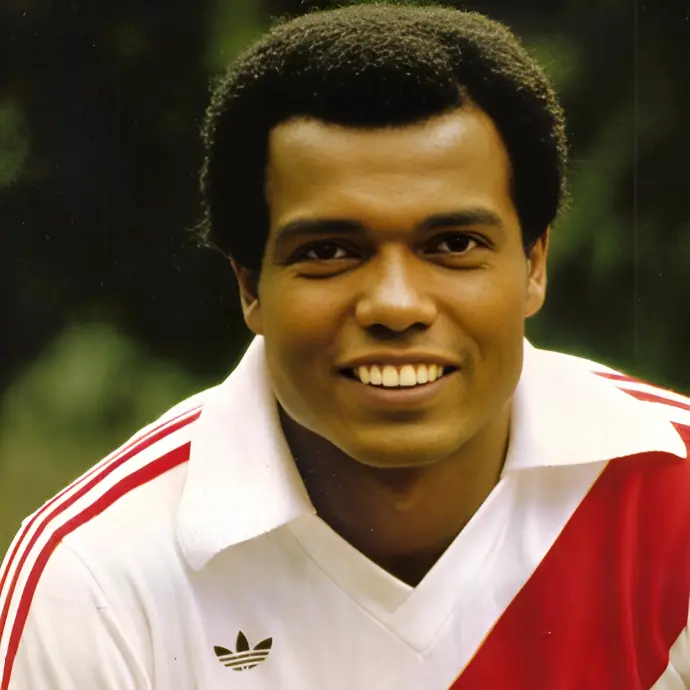
- Age : 28/29 years old
- Club : Alianza Lima
- Statistics : 32 games, 24 goals, / assists
- Trophies : Peruvian League
- Individual Awards : World Cup TOTT, Peruvian POTY
In 1978, Teófilo Cubillas reminded the world why he was called El Nene—a magician in midfield with a cannon for a right foot and the calm of a veteran chess master. At 29, he was the undisputed icon of Peruvian football, and that year, he delivered one of the most unforgettable World Cup performances of the decade. World Cup brilliance Cubillas lit up the group stage of the 1978 World Cup in Argentina, scoring 5 goals in 3 matches, including a stunning hat-trick against Iran and a brace against Scotland2. His goals weren’t just numerous—they were spectacular. Two of them were thunderous free kicks that curved and dipped like guided missiles, showcasing his trademark technique. He finished the tournament with 5 goals in 6 matches, earning a spot in the FIFA World Cup All-Star Team.
#5 Kenny Dalglish
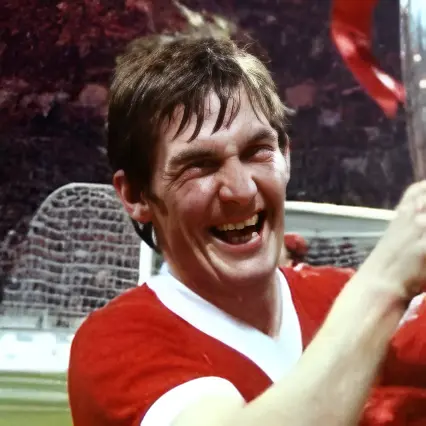
- Age : 26/27 years old
- Club : Liverpool FC
- Statistics : 63 games, 30 goals, 15 assists
- Trophies : Champions League, Finalist UEFA Supercup, Premier League Vice-Champion, Finalist English League Cup
- Individual Awards : Champions League TOTY
In 1978, Kenny Dalglish was the crown jewel of Liverpool’s golden era, a Scottish forward whose intelligence, movement, and icy composure made him the perfect heir to Kevin Keegan—and perhaps even more. At 27, Dalglish had just completed his first full calendar year at Anfield after arriving from Celtic in 1977. And what a year it was. In May, he scored the winning goal in the European Cup final against Club Brugge at Wembley—a delicate chip past the keeper that sealed Liverpool’s second continental crown and etched his name into club folklore. But Dalglish wasn’t just a big-game player—he was relentlessly consistent. Across the 1978 calendar year, he played dozens of matches in the First Division, European Cup, FA Cup, and League Cup, often as the creative fulcrum of Bob Paisley’s side. He scored in league routs, tight cup ties, and European nights, finishing the year with over 30 goals in all competitions. His link-up play with Graeme Souness and David Johnson was telepathic, and his ability to drop deep or ghost into the box made him unmarkable.
#4 Peter Shilton
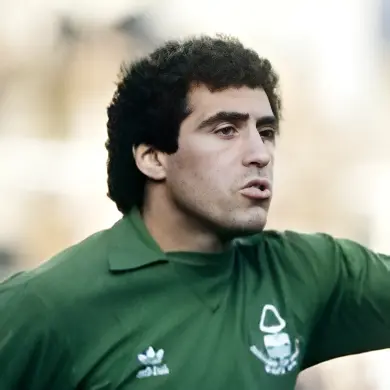
- Age : 28/29 years old
- Club : Nottingham Forest
- Statistics : 58 games, 38 goals conceded, 29 clean sheets
- Trophies : British Home Championship, English League, English League Cup, Community Shield
- Individual Awards : Premier League POTY, Premier League TOTY
In 1978, Peter Shilton was the calm in Nottingham Forest’s storm of success, a goalkeeper whose presence turned chaos into control and whose gloves seemed magnetized to the ball. At 28, Shilton was in his first full calendar year under Brian Clough, and he wasted no time becoming the foundation of Forest’s defensive fortress. That year, he helped the club win the First Division title—their first in over two decades—conceding just 24 goals in 42 league matches, a record that still stuns. His positioning was flawless, his reflexes razor-sharp, and his command of the box absolute. He didn’t just stop shots—he erased danger before it began.
#3 Hans Krankl
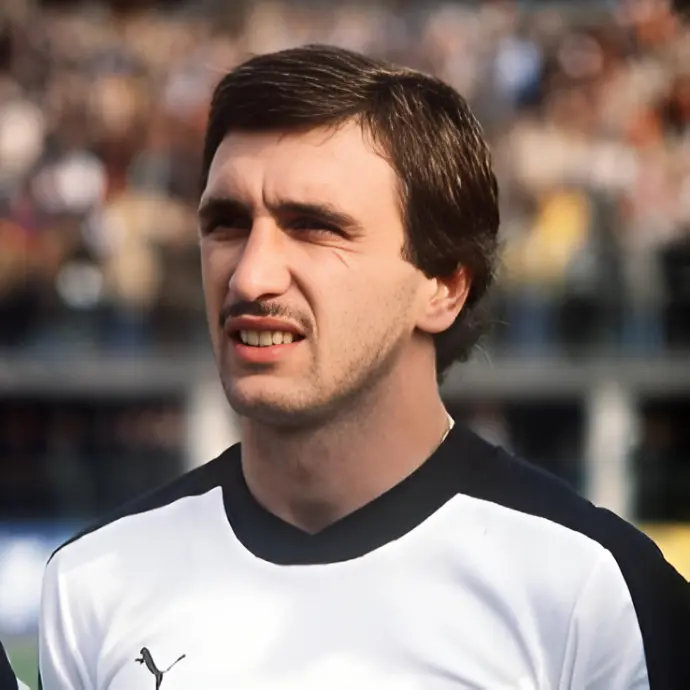
- Age : 24/25 years old
- Club : Rapid Vienna/FC Barcelona
- Statistics : 49 games, 46 goals, 6 assists
- Trophies : Austrian League Vice-Champion
- Individual Awards : Austrian League POTY, Austrian League TOTY, Austrian League Golden Shoe (41 goals)
In 1978, Hans Krankl was a goal machine turned global sensation, a striker whose left foot terrorized defenses from Vienna to Barcelona. At 25, he delivered a year so explosive that it catapulted him from Austrian icon to European elite. Krankl began the year by finishing the 1977–78 Austrian Bundesliga season as top scorer with 41 goals, earning him the European Golden Boot—the award for the highest scorer in any European league. His finishing was clinical, his movement instinctive, and his hunger insatiable. He wasn’t just scoring—he was erasing opponents. At the 1978 World Cup in Argentina, Krankl led Austria to the second round, scoring 3 goals, including the unforgettable winner in the legendary “Miracle of Córdoba”—a 3–2 victory over West Germany, Austria’s first win over their neighbors in 47 years. That goal didn’t just win a match—it became a national memory.
#2 Rob Rensenbrink
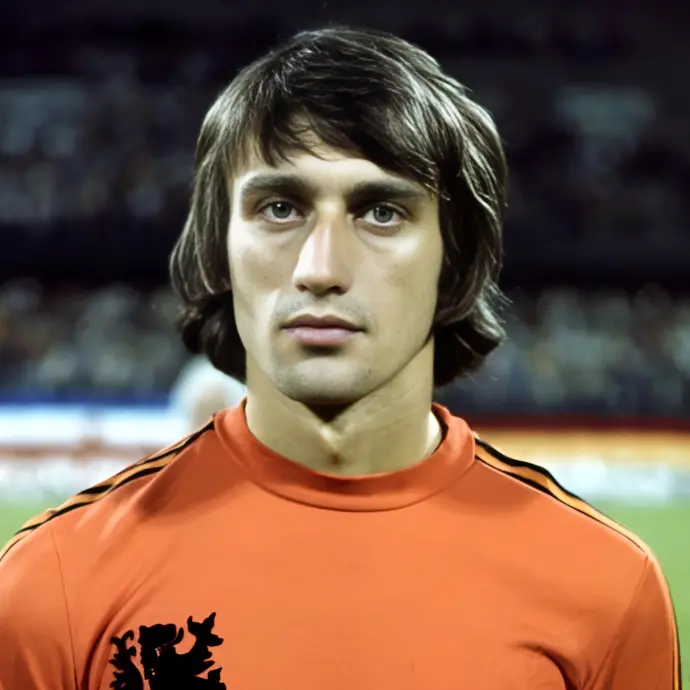
- Age : 30/31 years old
- Club : Anderlecht
- Statistics : 52 games, 27 goals, 6 assists
- Trophies : Finalist World Cup, Cup Winners Cup, UEFA Supercup, Belgian League Vice-Champion
- Individual Awards : World Cup TOTT, Cup Winners Cup TOTY, Belgian League TOTY
In 1978, Rob Rensenbrink was the Dutch master of subtlety and precision, a left-footed artist whose elegance masked a ruthless efficiency in front of goal. At 30, he was at the peak of his powers, leading both club and country with a quiet brilliance that often flew under the radar—but never under the scoreboard. For Anderlecht, Rensenbrink helped secure the European Cup Winners’ Cup, scoring crucial goals and providing the creative spark from the left wing. His dribbling was deceptive, his finishing clinical, and his penalty-taking nearly flawless. That same year, he also lifted the UEFA Super Cup, capping off a golden era for the Belgian giants. He wasn’t just a contributor—he was the difference-maker. But it was at the 1978 World Cup in Argentina where Rensenbrink etched his name into footballing folklore. He scored five goals in seven matches, including a hat-trick against Iran and a vital strike against Scotland that marked the 1,000th goal in World Cup history. He also provided three assists, making him the Netherlands’ top scorer and most decisive player in the tournament. In the final against Argentina, he came within inches of immortality—his shot in the dying seconds of regular time struck the post. Had it gone in, the Dutch might have been world champions.
Winner : Mario Kempes
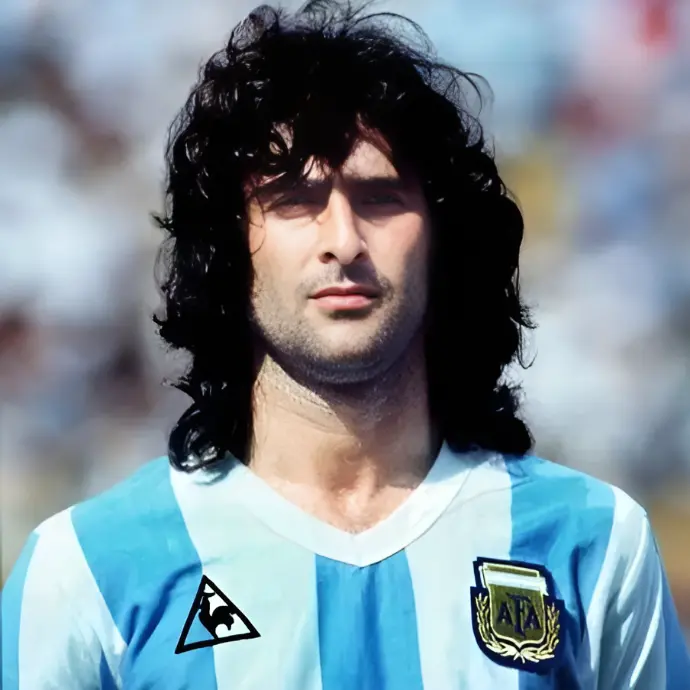
- Age : 23/24 years old
- Club : Valencia CF
- Statistics : 52 games, 30 goals, 2 assists
- Trophies : World Cup
- Individual Awards : World Cup POTT, World Cup TOTT
In 1978, Mario Kempes became the face of a nation’s triumph and the soul of its footballing identity, delivering a year so iconic it redefined what it meant to wear the number 10 in Argentina. At club level, Kempes was already a star at Valencia CF, where he had finished the 1977–78 La Liga season as top scorer with 28 goals. His blend of power, pace, and precision made him unplayable in Spain, and his reputation as a lethal forward was growing fast across Europe. But it was on home soil, in the pressure cooker of the 1978 FIFA World Cup, that he transcended stardom and entered legend. Kempes scored six goals in the tournament, including two in the final against the Netherlands, where he was everywhere—charging through defenders, creating chaos, and finishing with clinical fury. His second goal in extra time, a scrappy, determined finish, symbolized Argentina’s grit and glory. He finished as the Golden Boot winner and was also awarded the Golden Ball as the tournament’s best player. That World Cup wasn’t just a victory—it was a coronation. Kempes didn’t just lead Argentina to its first world title. He embodied it. Long hair flying, socks rolled down, he played with a mix of elegance and ferocity that captured the imagination of a country in need of joy.